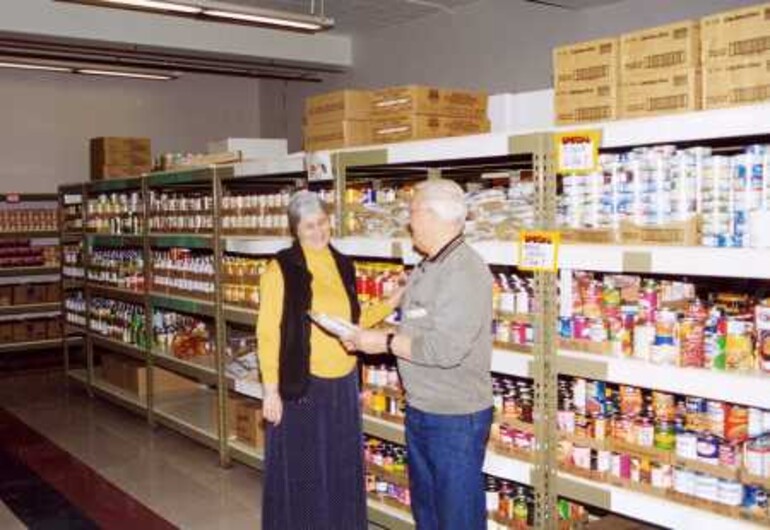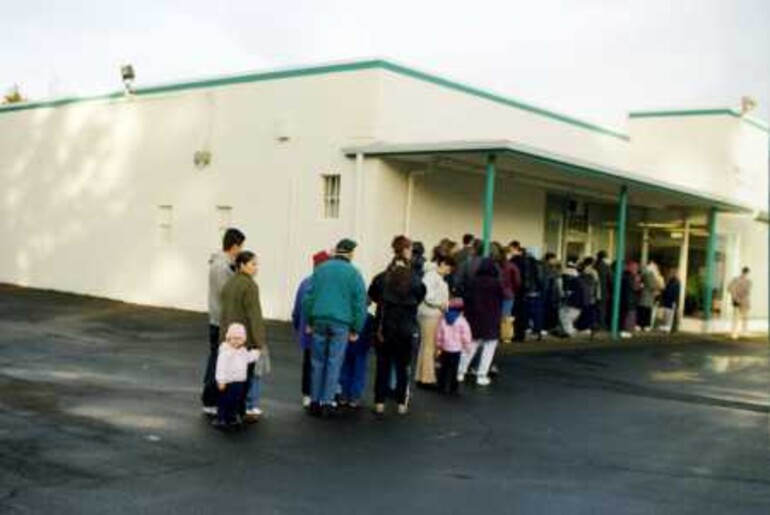It’s 8:30 on a weekday morning at Portland Adventist Community Services (PACS) Center, and already a long line of people awaits entrance in a half hour to seek food or other assistance.
When you run out of money and there’s no food to feed your family, you may need the help of an agency. You might feel embarrassed and degraded as you fill out forms and wait in line. You might be given a box containing an uncoordinated mixture of foodstuffs. How do you even begin to make balanced meals out of it? There may be some items you or your family don’t like or can’t eat because of dietary or health reasons.
This, however, doesn’t happen at PACS. As she considered how Jesus would handle the giving of food to the needy, Rhonda Whitney, PACS director, felt it would be with dignity and love. “We wanted the people we help not to feel any humiliation about asking for food," she said. "They shouldn’t be ashamed to come here.”
Whitney and her staff devised a plan completely different from what had been done before. As people enter, each person or head of family is interviewed by a consultant who determines their situation. Then each entity is given a shopping checklist printed in various languages that points clients to a nutritious, balanced selection.
The aim is to provide each party an emergency three-day supply of food to tide them over until welfare or other checks arrive or until their critical needs are met. This past year PACS aided more than 59,000 hungry people, giving out as much as a ton and a half of food daily.
Where does all this food come from? Church members donate to PACS through food drives, but the bulk comes from area stores and from the Oregon Food Bank. Each day, volunteers also make the rounds to grocery stores, which donate their unsold and too-old goods. PACS is the only agency in the Portland area to own a refrigerated vehicle convenient for hauling perishable food.
But food is only one part of the PACS program. Clothing, household and personal items are available through a thrift store that is open to the general public as well as needy clients, who are given vouchers for purchases. Money from private contributions helps support the store and purchase materials for resale. The thrift store sees more than 300 people daily and brings in $135,000 yearly to subsidize the work of PACS.
Another important facet is the health clinic staffed by volunteer physicians and nurses. More than 1,600 income-eligible patients received medical attention this past year for only a small fee.
PACS is no small operation and served 168,000 people in 2002. No other agency combines medical care and a clothing program under one roof. Still, PACS functions on a bare-bones budget geared to glean the most from every dollar donated by using volunteers and only a small, paid staff.
PACS is said to be the largest agency of its kind in Oregon. Whitney explained, “The Oregon Food Bank told us we serve more hungry people than any other agency in southwestern Washington or all of Oregon. That distinction is based purely on the numbers of people we feed each year at one location."
With its varied ministries PACS is touching the lives of thousands of people each year in the Portland area.











